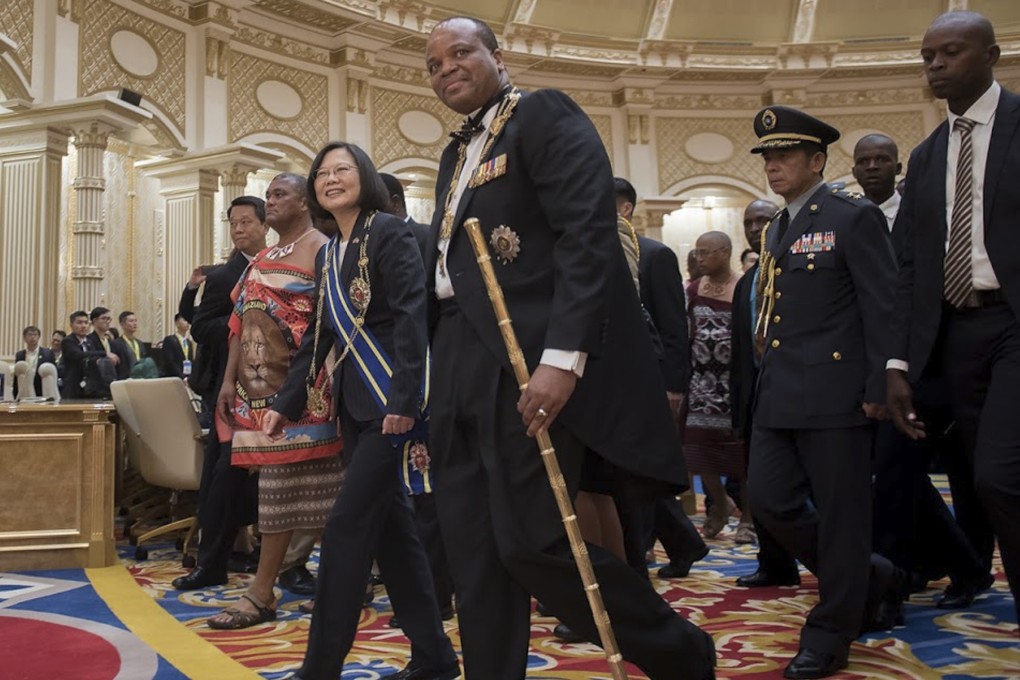Advertisement
WHO coronavirus meeting highlights Taipei’s last African ally eSwatini
- Despite pressure from Beijing the tiny country of 1.3 million people in southern Africa has maintained diplomatic ties
- The monarchy was one of 14 formal allies to support Taipei’s bid to rejoin the World Health Assembly on Monday
Reading Time:3 minutes
Why you can trust SCMP

Taiwan may have missed critical support from African countries in its latest bid to rejoin the World Health Organisation’s decision-making body as an observer, but one tiny nation stood by its long-time ally.
The southern African nation eSwatini – which dropped its colonial-era name of Swaziland two years ago – was among 14 countries which expressed support for the self-ruled island to participate in the World Health Assembly on Monday. The country devoted most of its speech to the virtual gathering making a case for Taiwan.
China, which considers Taiwan a breakaway province, was the main opponent of the proposal led by Belize, chair of the Alliance of Small Island States, and supported by Taipei’s remaining diplomatic allies at the assembly. Belize said via video link that Taiwan had “much to share regarding its success in containing the spread of Covid-19, notwithstanding its proximity to the source of the outbreak”.
Advertisement
The US, whose relations with Beijing have turned sour, said Taiwan needed to participate as an observer “to bring a helpful perspective regarding their effective and exemplary response”. Other informal allies which openly supported Taiwan’s endeavour included New Zealand, Australia and Japan. Taipei withdrew its bid before a vote was taken.
Shelley Rigger, a senior fellow in the Asia Programme at the Foreign Policy Research Institute, a think tank based in Philadelphia, said the issue of Taiwan’s participation in the assembly was not new but “may be a little more prominent this year because of deteriorating relations between China and the US”.
Advertisement
Advertisement
Select Voice
Select Speed
1.00x